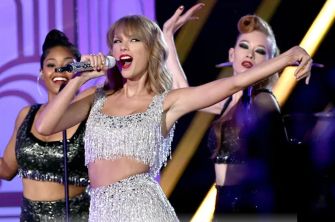Taylor Swift’s long-running legal battle over her 2014 megahit “Shake It Off” has officially come to a close. As of June 2025, the copyright infringement lawsuit filed against the pop star by songwriters Sean Hall and Nathan Butler has been formally dismissed, ending nearly eight years of litigation that centered around one of Swift’s most recognizable choruses and raising important questions about creativity, language, and ownership in pop songwriting.
The lawsuit, first filed in 2017, claimed that Swift’s chorus - particularly the lines “players gonna play” and “haters gonna hate” - unlawfully borrowed from Hall and Butler’s 2001 track “Playas Gon’ Play,” originally performed by the R&B girl group 3LW. That song includes the lyrics “playas, they gonna play” and “haters, they gonna hate,” and the plaintiffs argued that Swift and her team lifted these phrases directly, constituting copyright infringement.
Swift has consistently denied the allegations, asserting from the outset that the lyrics in question were common expressions, part of everyday speech and widely used in hip-hop and pop culture long before either song was written. Her legal team argued that the suit posed a dangerous precedent for songwriters and would restrict artistic freedom by allowing commonly used phrases to be monopolized. At one point, Swift even submitted a sworn declaration stating that she had never heard the 3LW track prior to the lawsuit.
The case was initially dismissed in 2018, with a judge ruling that the lyrics were “too banal” to be eligible for copyright protection. But in a surprising twist, a federal appeals court revived the suit in 2019, allowing it to proceed. What followed was a years-long legal back-and-forth, including depositions, expert testimony, and delays, with a jury trial finally set for early 2023.
However, just weeks before the trial was scheduled to begin, both parties quietly agreed to dismiss the case. A joint filing in December 2022 stated that the suit had been dropped “in its entirety,” and while no public settlement was announced, the dismissal was with prejudice, meaning it cannot be refiled. Swift’s spokesperson declined to comment on the specifics at the time, and Hall and Butler have remained silent since the case was closed.
The dismissal marked the end of a drawn-out legal saga that drew widespread media attention not just because of Swift’s celebrity, but because of the broader implications for songwriting and copyright law. In an era where lyrical overlap is almost inevitable, particularly in pop, where idioms and cultural catchphrases are part of the genre’s lifeblood, the case raised concerns among musicians, producers, and musicologists about how much protection simple, repeated phrases should be given.
Swift, who has faced her share of controversies throughout her career, framed the case as an attack on creative expression. Her legal team’s defense pointed to the broader trend of high-profile copyright lawsuits in recent years from Robin Thicke’s “Blurred Lines” case to Ed Sheeran’s multiple legal entanglements, as signs of an industry increasingly shaped by litigation rather than innovation.
With the suit finally dismissed, “Shake It Off” returns to what it’s always been: one of the biggest pop songs of the last decade. Swift, meanwhile, continues to build her career as one of the most powerful figures in music, now with full legal ownership not only of the disputed lyrics, but of the entire 1989 album, which she re-recorded and re-released on her own terms.






